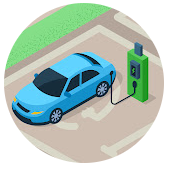
Understanding the Impact of Tariffs on the Auto Industry
The automotive sector is on edge as impending tariffs prompt a significant reevaluation of market dynamics. These economic shifts are not only affecting large manufacturers but reverberating through the entire supply chain, impacting dealerships and consumers alike. In the face of these changes, understanding consumer sentiment has never been more crucial.
Consumer Sentiment: A Key Indicator
Recent reports indicate a slump in consumer sentiment, correlating with rising price expectations driven by the potential for increased tariffs. This decline could affect purchasing decisions, leading consumers to hesitate before investing in new vehicles. Understanding these patterns can help dealership principals and general managers strategize effectively for the future.
The Ripple Effects of Tariffs on Auto Sales
Tariffs can lead to heightened prices on imported vehicles and components, prompting a potential slowdown in sales. Dealerships, especially, need to recognize that a rise in costs may dissuade buyers from making larger purchases. As a response, dealerships may need to explore improved training programs for their sales teams to arm them with effective persuasion techniques and comprehensive knowledge about the evolving market.
Proactive Strategies to Mitigate Risks
In uncertain times, being proactive is essential. Dealerships can employ auto sales training focused on overcoming price objections and enhancing customer service. Upskilling staff through effective automotive classes online or face-to-face car training days can empower teams to navigate challenging economic landscapes.
The Future of Auto Lending: Navigating New Challenges
With economic conditions shifting, auto lenders are observing an uptick in fraud, creating an atmosphere of heightened vigilance. As discussed in our recent podcasts, fostering strong relationships with funding partners and implementing strict risk management practices will be imperative. This proactive approach can shield dealerships from unforeseen downturns and foster trust with consumers.
Embracing Technological Advancements
It’s essential for the auto industry to leverage technological innovations such as the best AI website builders, which can enhance online presence. By building informative and engaging websites, dealerships can better educate consumers about their offerings, particularly during times of economic uncertainty.
Conclusion: Take Action Now
As the auto industry braces for tariff impacts, now is the time for dealership leaders to implement strategies that position them for success. Engage in continual staff training, fortify customer relations, and leverage technology to ensure resilience in an evolving marketplace. By taking proactive steps, dealerships can navigate the challenges ahead and emerge stronger.
 Add Row
Add Row  Add
Add 




Write A Comment